All About the Mind: Buddhist Psychology and Epistemology
with Gus Cutz
The mind is easily the single most important phenomenon in our lives. It is the only thing we are constantly and directly engaged with. And yet it is one of the things most of us understand the least. In fact, most of the time we are as utterly unaware of it as a fish is of water.
To help us gain a clearer understanding of our lives and experiences and greater control over our destinies, the Buddha taught extremely powerful and sophisticated methods for us to gain direct experiential and empirical knowledge of the nature and functioning of the mind, as well as “psychological technologies” for us to change our minds as we wish to increase our happiness, wisdom, and compassionate lovingkindness. For this reason, Buddhism is often described as a science of the mind.
In accordance with Venerable Robina Courtin’s specific advice to our group, we have created this course as a companion to Discovering Buddhism, to provide students with an opportunity to take a deeper look into the Buddhist teachings on the mind. This has been designed as an introductory course on the Buddhist teachings about the mind, including Buddhist psychology (the study of the parts that make up the mind, and how they function and interact to bring us happiness and unhappiness), Buddhist epistemology (the analysis that answers the question of how do we know what we know with certainty), and Mahamudra (the most profound and direct teachings of the Buddha on the ultimate nature of the mind, phenomena, and ourselves).
In this course, we will better understand the mind and its functions, as well as several key points of the Buddhadharma, such as why we can find certainty in the Buddha’s teachings, even regarding things like rebirth, karma, and emptiness; how karma actually works; and how we can decrease delusions.
About the Teacher

Gustavo Cutz is an FPMT-certified teacher with some 25 years of Buddhist practice and study. Gus previously worked as an editor at Wisdom Publications in Boston. He worked with Geshe Thubten Soepa on interpreting and summarizing Geshe-la’s teachings on several topics, such as the Four Noble Truths, the eight worldly concerns, and the six perfections until Geshe-la passed away in 2022. Gus has a doctorate from LIU Post and works as a clinical psychologist on Long Island.
Gus has volunteered with Shantideva Center since 2008, facilitating and teaching Discovering Buddhism since 2012. With his deft mastery of a vast bibliography, Gus approaches Discovering Buddhism as a rigorous and comprehensive seminar. At the same time, Gus teaches with a light touch, warmly encouraging questions and valuing student understanding of the material. Gus brings the Buddha’s teachings to life with an appealing sense of humor, personal anecdotes, and vivid metaphors.
Gus also teaches the Debate Club at Shantideva Center in addition to teaching dharma topics at other spiritual centers.


